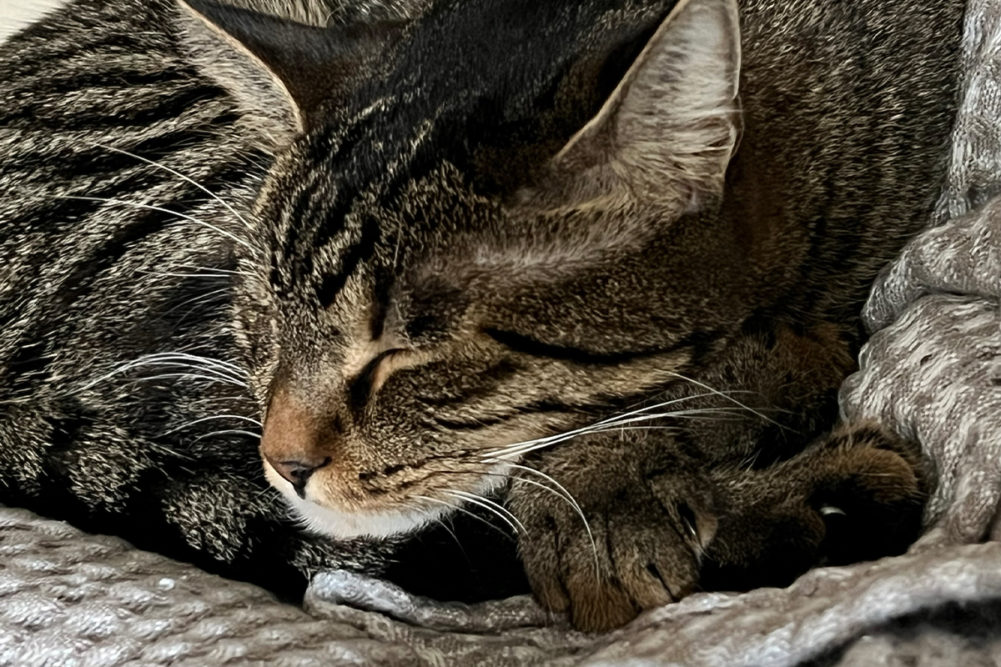Don’t come at me, but sometimes the needs of many in the hands of a few worries me.
In February, I adopted a cat; I blame only myself. His name is Mr. Boo. He looks like a humble gray tabby, but he thinks he’s the Lion King. He enjoys his food and the occasional snack (he’s 12 lbs).
Not too long ago, Mr. Boo had his first medical emergency. On a weekday evening, he was howling in pain and having trouble using his litterbox. He clearly was miserable, and after a quick Google search I found a local emergency vet.
It turns out that Mr. Boo, like many male cats, has a feline lower urinary tract disease called cystitis. It occurs when stones or crystals form in a cat’s bladder. Mr. Boo likely had a partial obstruction. The vet un-blocked him and sent us home with antibiotics, pain meds and several cans of food specially formulated to inhibit those nasty crystals from forming in his bladder. Within a few days, Boo was back to normal – scratching himself, the furniture and me.
A follow-up visit with his regular vet revealed that he would need the specially formulated food for the rest of his life – whether it be long or short – and I would need a prescription to get it for him. This is when I discovered that only two companies make the food that he must eat for the rest of his life. I was greeted with a message banner at the top of one company’s website that says: “As a result of increased demand, you may experience difficulty purchasing certain products in the coming months.”
So far, I’ve not had any problems finding Boo’s food. But I admit feeling a knot in my stomach when I first saw that message. Boo will eat most anything; but he shouldn’t if I want him to stay healthy and pain free.
As someone who spends a lot of time researching and writing about the business of meat and poultry processing, I understand the benefits of industry consolidation. As a consumer, I’m also aware that a little competition can go a long way toward making the procurement of goods and services easier, more affordable and more enjoyable. Remember when Google Fiber was a thing? My apartment building was wired for both cable and Google Fiber. Once, when I moved to a new apartment, I had a “cable concierge” who gently guided me through the process of re-establishing service at my new place – and she was the only person I dealt with during that time. Before Google Fiber when I needed to re-establish cable service, I arranged to meet the technician between the hours of 10 a.m. and 5 p.m. via a customer service rep who was very nice and probably living abroad – and that was after I’d broken through the automated operator/gatekeeper. If the technician failed to arrive during the allotted time, I’d have to call the cable company again, speak to a different customer service rep and re-start the whole frustrating process.
Consolidation within industries has its benefits and drawbacks. For meat and poultry processors, issues challenging the industry before the global pandemic were exacerbated when COVID-19 hit home. The drawbacks to having a few companies providing food products to millions of people across the country became clear, although the industry rallied and rose to the occasion.
The US Department of Agriculture is investing heavily in local food processing systems to avoid a repeat of the disruptions that occurred in the early days of the pandemic. Agriculture Secretary Tom Vilsack spoke with reporters about the government’s plan to provide more options for meat processing and how program requirements address concerns about the environment, business consolidation and labor.
No word yet on any benefits to pet food manufacturers. I’m stocking up on Mr. Boo’s food and optimistic that those two companies will keep doing what they do. The health and welfare of so many fur babies depend on them.


